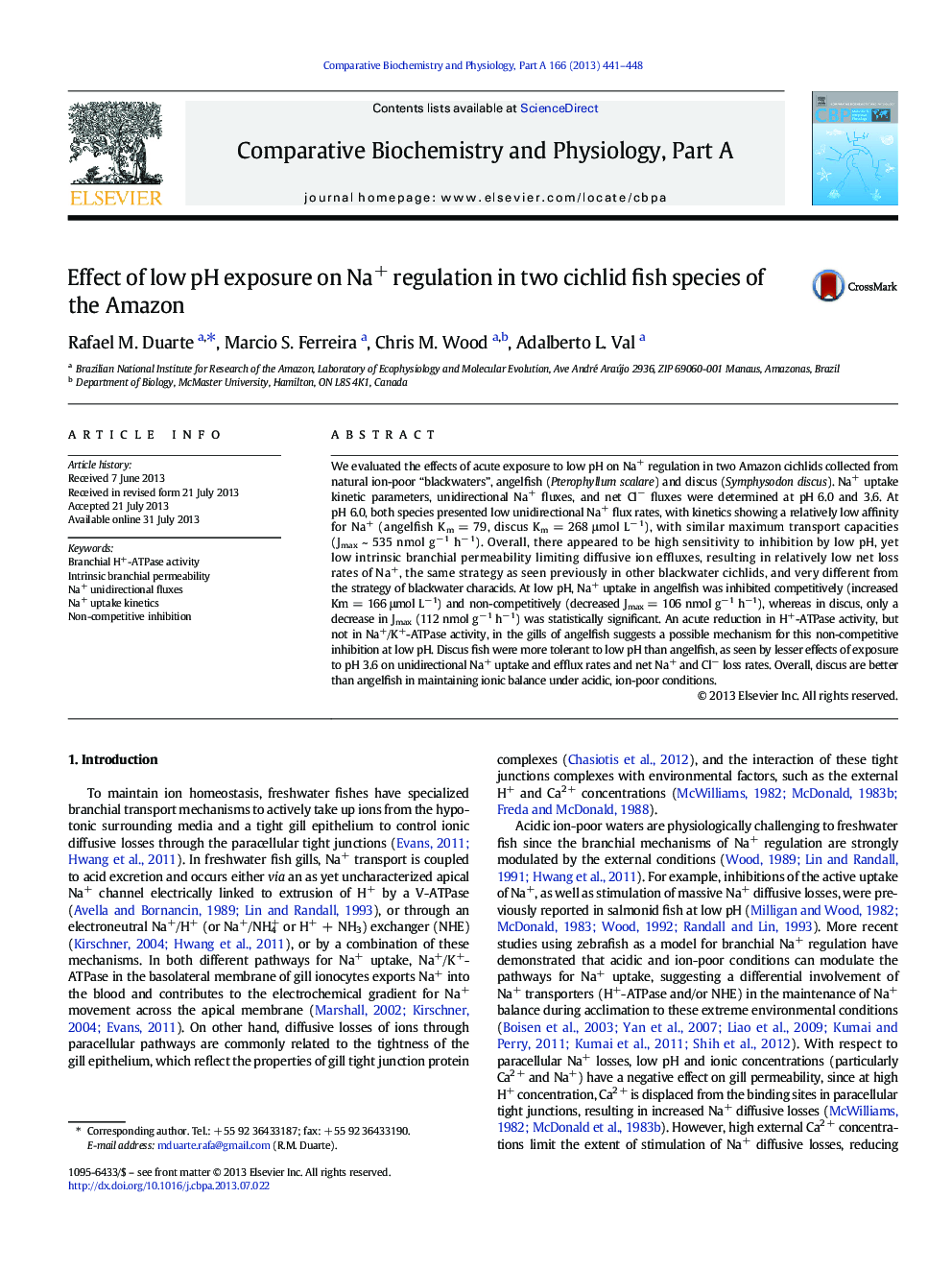| Article ID | Journal | Published Year | Pages | File Type |
|---|---|---|---|---|
| 10818835 | Comparative Biochemistry and Physiology Part A: Molecular & Integrative Physiology | 2013 | 8 Pages |
Abstract
We evaluated the effects of acute exposure to low pH on Na+ regulation in two Amazon cichlids collected from natural ion-poor “blackwaters”, angelfish (Pterophyllum scalare) and discus (Symphysodon discus). Na+ uptake kinetic parameters, unidirectional Na+ fluxes, and net Clâ fluxes were determined at pH 6.0 and 3.6. At pH 6.0, both species presented low unidirectional Na+ flux rates, with kinetics showing a relatively low affinity for Na+ (angelfish Km = 79, discus Km = 268 μmol Lâ 1), with similar maximum transport capacities (Jmax ~ 535 nmol gâ 1 hâ 1). Overall, there appeared to be high sensitivity to inhibition by low pH, yet low intrinsic branchial permeability limiting diffusive ion effluxes, resulting in relatively low net loss rates of Na+, the same strategy as seen previously in other blackwater cichlids, and very different from the strategy of blackwater characids. At low pH, Na+ uptake in angelfish was inhibited competitively (increased Km = 166 μmol Lâ 1) and non-competitively (decreased Jmax = 106 nmol gâ 1 hâ 1), whereas in discus, only a decrease in Jmax (112 nmol gâ 1 hâ 1) was statistically significant. An acute reduction in H+-ATPase activity, but not in Na+/K+-ATPase activity, in the gills of angelfish suggests a possible mechanism for this non-competitive inhibition at low pH. Discus fish were more tolerant to low pH than angelfish, as seen by lesser effects of exposure to pH 3.6 on unidirectional Na+ uptake and efflux rates and net Na+ and Clâ loss rates. Overall, discus are better than angelfish in maintaining ionic balance under acidic, ion-poor conditions.
Keywords
Related Topics
Life Sciences
Biochemistry, Genetics and Molecular Biology
Biochemistry
Authors
Rafael M. Duarte, Marcio S. Ferreira, Chris M. Wood, Adalberto L. Val,
